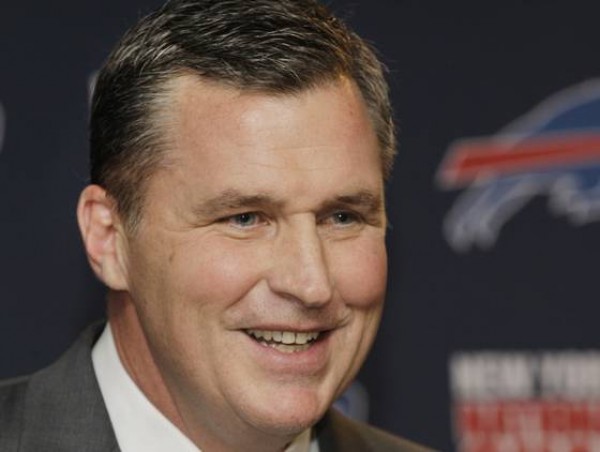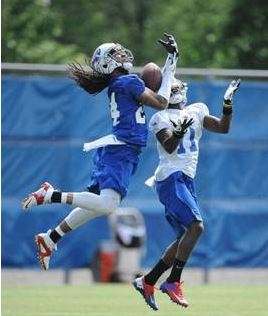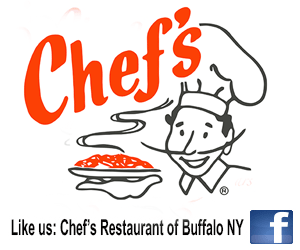Opening statement:
Obviously coming in just working with the players really at the start of phase one, our goal was to make sure that we build and earn that trust and in turn, they go ahead and do that to us. That was really the goal as far as I think everyone understands the things that come afterwards: offense, defense special teams, working on the scheme. Really building a relationship, making sure that we’re all part of one team was important, that there wasn’t any separation. I think we’re able to do that. I’m very pleased with the amount of work that we’ve gotten done. We’ve reached our goal as far as what we wanted to get in. We’ve reached our goal as far as teaching the players what our tempo is, how we want to practice. They’ve responded in a professional way, which is greatly appreciated by myself and the staff. We’re excited and that’s how it should be. We’re leaving here knowing that we have a lot of hard work ahead of us, but it’s also hard work that we’re looking forward to.
Q: Are there a lot of adjustments that you feel you need to make after going over the film of these practices?
A: Obviously we’re looking to make sure that we’re not going to make any mistakes and that we’re putting the players in the best situation. So I think that’s the first thing. All three systems do that. We’re looking for where we can put in plays where they can be most successful. I don’t think we’re looking to take things out unless they really didn’t fit because we went thinking about the personnel and we went in putting things that fit. Now it’s a library of offense, defense, special teams. I think we still keep that same type of foundation when we go through training camp. When you get to the first week of the year, you look at what you can be successful at, where the players can have success and then you start taking things out and putting things in.
Q: For position battles, how much do you look at OTA’s and minicamp? Is it exclusively something you look at in training camp?
A: We look at some of the traits that we’re looking for in the position and the player. Then we look at the amount of reps. Knowing that when the pads come on, some players may disappoint you that you’ve been excited about prior to it and then some players actually pick it up. I think there is a lot that goes in to it, but at a much more competitive way, more real for what we’re doing once we put the pads on at training camp.
Q: What are you most looking forward to in regards to training camp?
A: I like being around the players, that’s what I look forward to most. I look forward to them developing and them becoming close and creating a team-like atmosphere where we’re all accountable for each other. That’s what I look forward to. To answer your question from a professional view of what my job entails, yes I do think that when it comes on and the pads come on and we start playing preseason, I think that’s where people start separating themselves and that’s where the players have to understand that’s where we’re looking for them to make something happen, to make plays. You see it around here a lot—‘Don’t confuse effort with results.’ Everyone’s trying hard and everyone is doing that, but at the end of the day it’s about making the plays.
Q: What do you expect from your players between now and training camp?
A: Well I’m going to address that with them at our one o’clock team meeting. I think a lot of times you get up there and you’re saying “make sure you do this, make sure you do that,” but if you’ve been preaching all along like we have for our players to be professionals, then you want to make sure that they take this time because it is really a long period of time out, well deserved time, and enjoy themselves and relax. Enjoy their family. Enjoy their friends. Make sure that when they do come back, that they are in condition and that they are ready to go. The reason why is because we’re accountable to each other. Don’t think that what I’ve just said, that last part of it, is a contradiction to the first part. I mean that and come back here ready to go.
Q: It seems like you’ve got a lot of quality play from Kiko Alonso and Alex Carrington. What are your thoughts on them?
A; I think Kiko (Alonso) has done an outstanding job, he really has. For a young man coming in and doing the things (he has)…There’s been a little bit of ups and downs, but that’s not a knock on him. That is what happens with young players. I’m extremely excited to see him perform when the pads come on. I’m excited about it and I’m looking forward to it. He’s done a very good job. I think Alex Carrington has done what we’ve asked him to done and has done it very well. I’m very excited about him.
Q: Can you elaborate a little bit more on what you mean by the difference between having the pads off versus having them on?
A: Sure. I can give you a better perspective from the offensive side of things, but I’ll try to give you both. For lack of a better example, I’m going to give an example for each. You’re a receiver and you’re coming over the middle and you’re in this type of phase of what we do, you know you’re no going to get hit. A little bit easier to go ahead and catch that ball in there. For the defensive side of things I think it’s a little bit easier to go in there and tag somebody when the reality is you’re going to have to go in there and tackle. I think those are the things that happen once you put the pads on. I’ve made that mistake before and I’ve said that publically. I’ve been in a situation where we’ve had a player perform extremely well in this type of environment to a point where we started putting in plays for him in our system going in to the preseason camp and that player didn’t perform the same way once the pads came off. We probably wasted a little bit of time. One thing about us as coaches and players, time management is quite big.
Q: Is it a mental thing that players don’t perform as well in pads?
A: No I never said they don’t perform. You just have to make sure of that. You just have to make sure because you want to evaluate players on the game that you play. We sit here and evaluate movement skills, characteristics that we foresee carrying over to when the pads come on. When the pads come on, you are what you put on film, it is what it is and the film never lies and all of those clichés are always true. Not that I’m a big cliché guy.
Q: It seemed there was some chippiness today on the field. What do you make of it and is that something you’re going to address?
A: I think you have to be a professional. That’s not what we’re out here for. We’re here to be competitive not combative. That’s the message that we talk to our players about quite a bit.
Thursday, June 13, 2013
Opening statement:
Obviously coming in just working with the players really at the start of phase one, our goal was to make sure that we build and earn that trust and in turn, they go ahead and do that to us. That was really the goal as far as I think everyone understands the things that come afterwards: offense, defense special teams, working on the scheme. Really building a relationship, making sure that we’re all part of one team was important, that there wasn’t any separation. I think we’re able to do that. I’m very pleased with the amount of work that we’ve gotten done. We’ve reached our goal as far as what we wanted to get in. We’ve reached our goal as far as teaching the players what our tempo is, how we want to practice. They’ve responded in a professional way, which is greatly appreciated by myself and the staff. We’re excited and that’s how it should be. We’re leaving here knowing that we have a lot of hard work ahead of us, but it’s also hard work that we’re looking forward to.
Q: Are there a lot of adjustments that you feel you need to make after going over the film of these practices?
A: Obviously we’re looking to make sure that we’re not going to make any mistakes and that we’re putting the players in the best situation. So I think that’s the first thing. All three systems do that. We’re looking for where we can put in plays where they can be most successful. I don’t think we’re looking to take things out unless they really didn’t fit because we went thinking about the personnel and we went in putting things that fit. Now it’s a library of offense, defense, special teams. I think we still keep that same type of foundation when we go through training camp. When you get to the first week of the year, you look at what you can be successful at, where the players can have success and then you start taking things out and putting things in.
Q: For position battles, how much do you look at OTA’s and minicamp? Is it exclusively something you look at in training camp?
A: We look at some of the traits that we’re looking for in the position and the player. Then we look at the amount of reps. Knowing that when the pads come on, some players may disappoint you that you’ve been excited about prior to it and then some players actually pick it up. I think there is a lot that goes in to it, but at a much more competitive way, more real for what we’re doing once we put the pads on at training camp.
Q: What are you most looking forward to in regards to training camp?
A: I like being around the players, that’s what I look forward to most. I look forward to them developing and them becoming close and creating a team-like atmosphere where we’re all accountable for each other. That’s what I look forward to. To answer your question from a professional view of what my job entails, yes I do think that when it comes on and the pads come on and we start playing preseason, I think that’s where people start separating themselves and that’s where the players have to understand that’s where we’re looking for them to make something happen, to make plays. You see it around here a lot—‘Don’t confuse effort with results.’ Everyone’s trying hard and everyone is doing that, but at the end of the day it’s about making the plays.
Q: What do you expect from your players between now and training camp?
A: Well I’m going to address that with them at our one o’clock team meeting. I think a lot of times you get up there and you’re saying “make sure you do this, make sure you do that,” but if you’ve been preaching all along like we have for our players to be professionals, then you want to make sure that they take this time because it is really a long period of time out, well deserved time, and enjoy themselves and relax. Enjoy their family. Enjoy their friends. Make sure that when they do come back, that they are in condition and that they are ready to go. The reason why is because we’re accountable to each other. Don’t think that what I’ve just said, that last part of it, is a contradiction to the first part. I mean that and come back here ready to go.
Q: It seems like you’ve got a lot of quality play from Kiko Alonso and Alex Carrington. What are your thoughts on them?
A; I think Kiko (Alonso) has done an outstanding job, he really has. For a young man coming in and doing the things (he has)…There’s been a little bit of ups and downs, but that’s not a knock on him. That is what happens with young players. I’m extremely excited to see him perform when the pads come on. I’m excited about it and I’m looking forward to it. He’s done a very good job. I think Alex Carrington has done what we’ve asked him to done and has done it very well. I’m very excited about him.
Q: Can you elaborate a little bit more on what you mean by the difference between having the pads off versus having them on?
A: Sure. I can give you a better perspective from the offensive side of things, but I’ll try to give you both. For lack of a better example, I’m going to give an example for each. You’re a receiver and you’re coming over the middle and you’re in this type of phase of what we do, you know you’re no going to get hit. A little bit easier to go ahead and catch that ball in there. For the defensive side of things I think it’s a little bit easier to go in there and tag somebody when the reality is you’re going to have to go in there and tackle. I think those are the things that happen once you put the pads on. I’ve made that mistake before and I’ve said that publically. I’ve been in a situation where we’ve had a player perform extremely well in this type of environment to a point where we started putting in plays for him in our system going in to the preseason camp and that player didn’t perform the same way once the pads came off. We probably wasted a little bit of time. One thing about us as coaches and players, time management is quite big.
Q: Is it a mental thing that players don’t perform as well in pads?
A: No I never said they don’t perform. You just have to make sure of that. You just have to make sure because you want to evaluate players on the game that you play. We sit here and evaluate movement skills, characteristics that we foresee carrying over to when the pads come on. When the pads come on, you are what you put on film, it is what it is and the film never lies and all of those clichés are always true. Not that I’m a big cliché guy.
Q: It seemed there was some chippiness today on the field. What do you make of it and is that something you’re going to address?
A: I think you have to be a professional. That’s not what we’re out here for. We’re here to be competitive not combative. That’s the message that we talk to our players about quite a bit.
Filed under: Buffalo Bills
Tagged with: Buffalo Bills Doug Marrone, mini camp, NFL









Sorry, comments are closed on this post.